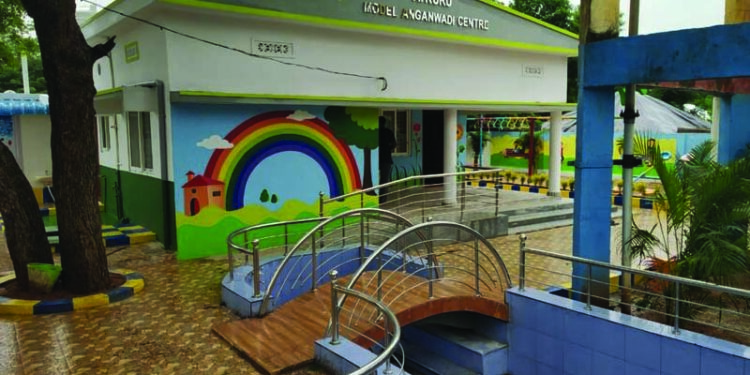NE NEWS SERVICE
NEW DELHI, APRIL 25

Anganwadi workers and helpers appointed to work in Anganwadi centres are entitled to gratuity under the Payment of Gratuity Act, 1972, the Supreme Court said on Monday.
A bench of Justices Ajay Rastogi and Abhay S Oka said Anganwadi centres also perform statutory duties and have become an extended arm of the government.
“The 1972 (Payment of Gratuity) Act will apply to Anganwadi centres and in turn to AWWs(Anganwadi Workers) and AWHs (Anganwadi Helpers),” the bench said.
- The Anganwadi centres have, thus, become an extended arm of the Government in view of the enactment of the National Food Security Act, 2013 and the Rules framed by the Government of Gujarat: Justice Abhay S Oka
- The time has come when the Central Government/State Governments have to collectively find out modalities in providing better service conditions to the voiceless commensurate to the nature of job discharged by Anganwadi workers/helpers: Justice Ajay Rastogi
The bench noted that the issue involved in these appeals is whether Anganwadi workers and Anganwadi helpers appointed to work in Anganwadi centres set up under the Integrated Child Development Scheme are entitled to gratuity under the Payment of Gratuity Act, 1972. The appeals arose out of writ petitions filed by the District Development Officer and two other officers for taking exception to the orders passed by the Controlling Authority which said that Anganwadi Workers and Anganwadi Helpers are entitled to gratuity under the 1972 Act, reports Press Trust of India.
“This finding was affirmed by a single bench of the Gujarat High Court. However, the division bench of the High Court, on appeals filed by the District Development Officer, set aside the single bench verdict and held that AWWs and AWHs could not be said to be employees as per Section 2(e) of the 1972 Act, and the ICDS project cannot be said to be an industry,” the apex court noted.
The top court said that because of the provisions of the National Food Security Act, 2013 and Section 11 of the Right To Education Act, Anganwadi centres also perform statutory duties.
“The Anganwadi centres have, thus, become an extended arm of the Government in view of the enactment of the National Food Security Act, 2013 and the Rules framed by the Government of Gujarat. The Anganwadi centres have been established to give effect to the obligations of the State defined under Article 47 of the Constitution. It can be safely said that the posts of AWWs and AWHs are statutory posts,” Justice Oka said in a separate judgment.
The apex court said that Anganwadi workers (AWWs) and Anganwadi helpers (AWH) have been assigned all¬ pervasive duties, which include identification of the beneficiaries, cooking nutritious food, serving healthy food to the beneficiaries, conducting pre-school for the children of the age group of 3 to 6 years, and making frequent home visits for various reasons.
“Implementation of very important and innovative provisions relating to children, pregnant women as well as lactating mothers under the 2013 Act has been entrusted to them. It is thus impossible to accept the contention that the job assigned to AWWs and AWHs is a part¬ time job.
“The Government Resolution dated November 25, 2019, which prescribes duties of AWWs and AWHs, does not lay down that their job is a part-¬time job. Considering the nature of duties specified thereunder, it is full¬time employment,” the bench said.
It said that in the State of Gujarat, AWWs are being paid monthly remuneration of only Rs 7,800¬ and AWHs are being paid monthly remuneration of only Rs.3,950¬.
AWWs working in mini ¬Anganwadi centres are being paid a sum of Rs 4,400 per month and the important tasks of providing food security to children in the age group of six months to six years, pregnant women as well as lactating mothers have been assigned to them, it said.
“For all this, they are being paid very meager remuneration and paltry benefits under an insurance scheme of the Central Government. It is high time that the Central Government and State Governments take serious note of the plight of AWWs and AWHs who are expected to render such important services to the society,” the apex court said.
Justice Rastogi also penned a separate but concurring judgment and said the time has come when the Central Government/State Governments have to collectively find out modalities in providing better service conditions to the voiceless commensurate to the nature of job discharged by Anganwadi workers/helpers.









